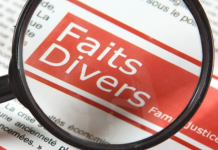JOHANNESBURG Earlier this week, our NBC News crew was shooting students milling around outside Nelson Mandela home in the heart of Soweto when cameraman Kyle Eppler turned to me between shots and remarked, “I don feel the energy here yet.”
It was an uncomfortable thought that had been nagging at me for much of my, albeit short, time here in South Africa, but one I dared not share with anyone.
Please don interpret this to mean unpreparedness for the World Cup on the part of the South African Organizing Committee or disinterest on the part of the people here. Cheap Jerseys from china On the contrary, everything you associate with a major sporting event signage, shiny new public works, national flags flying proudly over cars, fans breathlessly discussing the latest sporting news all those things are prominently on display in Johannesburg.
Yet, here we were in the townships of Johannesburg, the proverbial heart of soccer in this country, and something seemed to be missing.
Nervous tension and electric buzz the key elements that seemingly whip through communities as start of a big event approaches felt absent.
For someone who has been in cities like San Francisco before the start of the ill fated 1989 Bay Bridge Series, Boston before its 2004 World Series win and Beijing before the 2008 Olympics, I familiar with that feeling of excitement that can capture a city.
But my hangdog perception of the World Cup experience so far was shattered today after discovering perhaps the most simple, but singularly unifying event: Football (soccer) Fridays.
Since then, every Friday has become an opportunity for South Africans of all stripes to go to work in yellow national team jerseys, blow vuvuzelas (long horns) and attend special concerts and shows across the country.
On the final Football Friday before the start of the World Cup, all the stops were pulled out and the city appeared to be on the verge of full celebration mode.
On a visit to popular talk radio station Kaya 95.9, staffers resplendent in their Bafana Bafana jerseys danced to high octane dancehall reggae blasting over the office speakers while popular radio host Kgomotso Matsunyane grilled a line up of eager female (and a few surprised male) callers on their picks for hottest soccer stars.
“I got the green, but I can wear green every Friday. . My laundry cycle doesn go that quick!” piped the show sports announcer, referring on air to his noticeably absent jersey before being shouted down by the rest of the morning DJ team.
As far as the Kaya 95.9 radio team was concerned, the absence of yellow and green on Fridays was tantamount to mutiny and punishable by open mockery.
Tangled portraits, dancing mayors
A few blocks away from Kaya offices, a more dignified celebration kicked off as Nelson Mandela portrait was unveiled high above the eponymous bridge in downtown Johannesburg by longtime Mayor Amos Masondo.
I attended many similar ribbon cuttings working in China. There, these types of formal events are usually long on stiffness and short on levity as a careful script is followed by dignitaries soberly reading prepared speeches while citizens dutifully stand by and applaud until the ribbon is cut.
So it came as a pleasant surprise for me to see that throughout Masondo speech, fans cheered spontaneously, blew vuvuzelas and gamely waved South African flags. And even though they were standing on Mandela Bridge in a strong breeze, people continued to sing and dance.
It was only then, watching the onetime 2008 finalist for Mayor of the Year shake his booty and having the time of his life dancing with dozens of his constituents that I sheepishly realized that the buzz and excitement I had sought all week had been right in front of me all along.
I had been so caught up seeking the grandiosity, the pomp and circumstance that a country like China was able to pull off with such success in 2008, that I had lost sight of the people and country I had come ostensibly to cover.
Portrait unveiling mishaps, world class stadiums, security issues and line dancing mayors Johannesburg is a big city with a small town temperament and global aspirations.
To seek the spectacle of so many major global sporting events of the past is to ignore the greatest asset South Africa will bring to this World Cup: everyday people earnestly passionate about this beautiful game.










